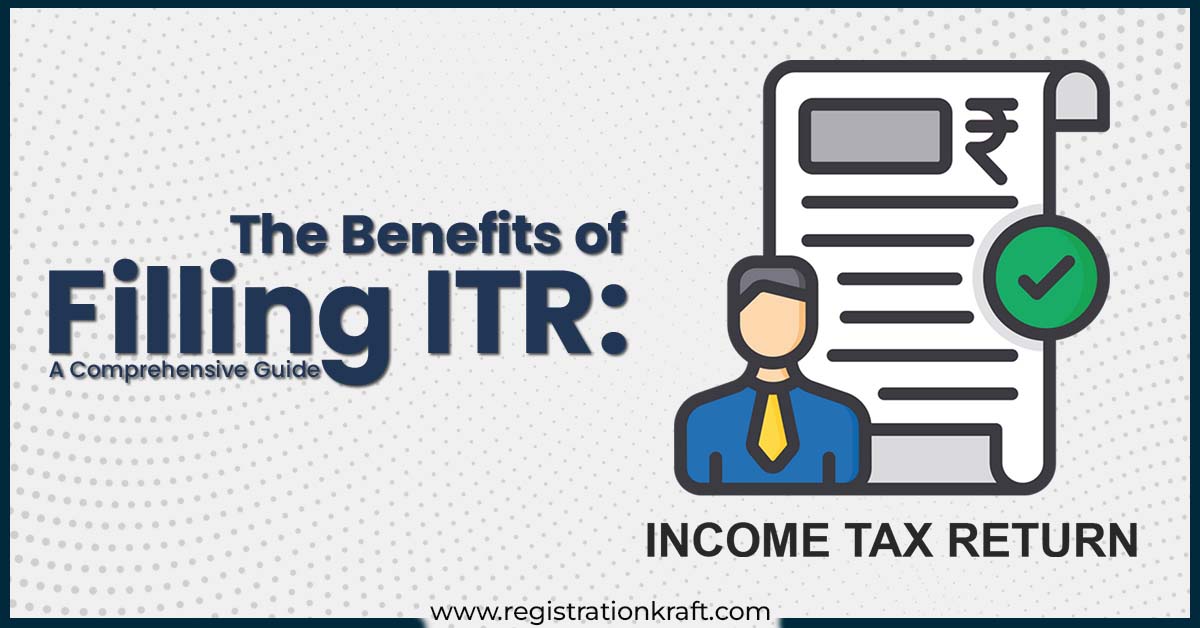The Income Tax Return (ITR) is a way to inform the government of your income for the financial year. The financial year starts on 1st April and ends on 31st March next year. For example, the financial year 2023-24 was started on 1st April 2023 and will end on 31st March 2024. Every working individual who earns through any medium such as a job or business has to file an ITR according to their tax slabs.
As the same is mandatory by the law. By filing ITR, people who pay taxes comply with the tax law. ITR is an important tool for the government as it helps to assess and verify the income, tax liability and financial transactions of the citizens of India. ITR filing promotes fairness and transparency in the tax system.
Advantages of ITR Filing in India
The taxpayer can save taxes in multiple ways and reduce their taxable income. Saving tax is the one benefit and other benefits are shared below:
Claim Tax Deductions and Rebates
By filing an ITR, a taxpayer can claim multiple deductions. The dedication helps the taxpayer to reduce their taxable income and for that, they can apply for the deduction of 80C, 80G for donations, and 80D for health insurance. If you are an individual and your total taxable income is less the Rs. 5,00,000 then you don’t have to pay any tax. But even though, you have zero tax liability you must file a zero ITR before the last date.
Quick Loan Approval
Mostly, the banks and NBFCs (Non-Banking Financial Institutions) ask for ITR filings of at least three years as income proof. So, anyone who is planning to take a loan must start filing ITR. This works as a document to show that the borrower is capable of paying back the amount of the loan. Both the salaried person and the self-employed person can use income tax returns as a document, and many banks and NBFCs provide loans based on it.
Fast Visa Approval
In the visa application, ITR is an important document and without filing the receipts it will be tough to show the financial capacity. With ITR the chances of visa approval get increased, as many countries such as the USA, Australia, Canada, and France require your income tax filing to check whether you can bear the travel expenses and fund your stay or not.
Effects of Failing to File an ITR
- Penalties: As per Section 234F of Income Tax, 1961 a taxpayer has to pay a late fee of Rs. 5000 if fails to file the ITR by the due date. If your income is below Rs. 5 lakh then the penalty is Rs. 1,000.
- Interest on outstanding tax: For the outstanding tax due, you are liable to pay interest on the amount at the rate of 1% per month, starting from the original due date. So, this increases your tax liability.
- Loss of carry-forward benefits: In case you have any losses from the previous year, then you can carry forward them and set off against your income in the current year. But, if you fail to file your ITR, you will lose the ability to claim these carry-forward benefits.
- Difficulty in obtaining loans and visas: Banks and other financial institutions such as NBFCs require a copy of your ITR as part of the process. Similarly, visa applications require proof of income tax compliance. So, if you fail to file your ITR then it becomes difficult for you to obtain these financial products and services. Learn more about the consequences of missing the ITR deadline
Frequently Asked Questions
Q1. Why is ITR filing necessary for visa approval?
Ans. With ITR the chances of visa approval get increased, as many countries such as the USA, Australia, Canada, and France require your income tax filing to check whether you can bear the travel expenses and fund your stay or not.
Q2. Am I eligible for paying tax?
Ans. If you are an individual and your total taxable income is less than Rs. 5,00,000 then you don’t have to pay any tax.
Q3. How does ITR help GOI?
Ans. ITR is an important tool for the government as it helps to assess and verify the income, tax liability and financial transactions of the citizens of India. It promotes fairness and transparency in the tax system.

